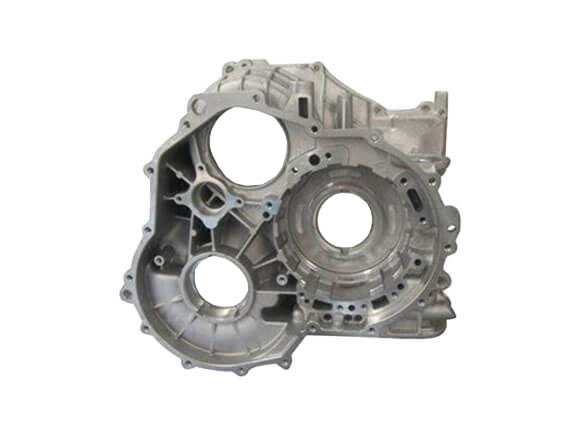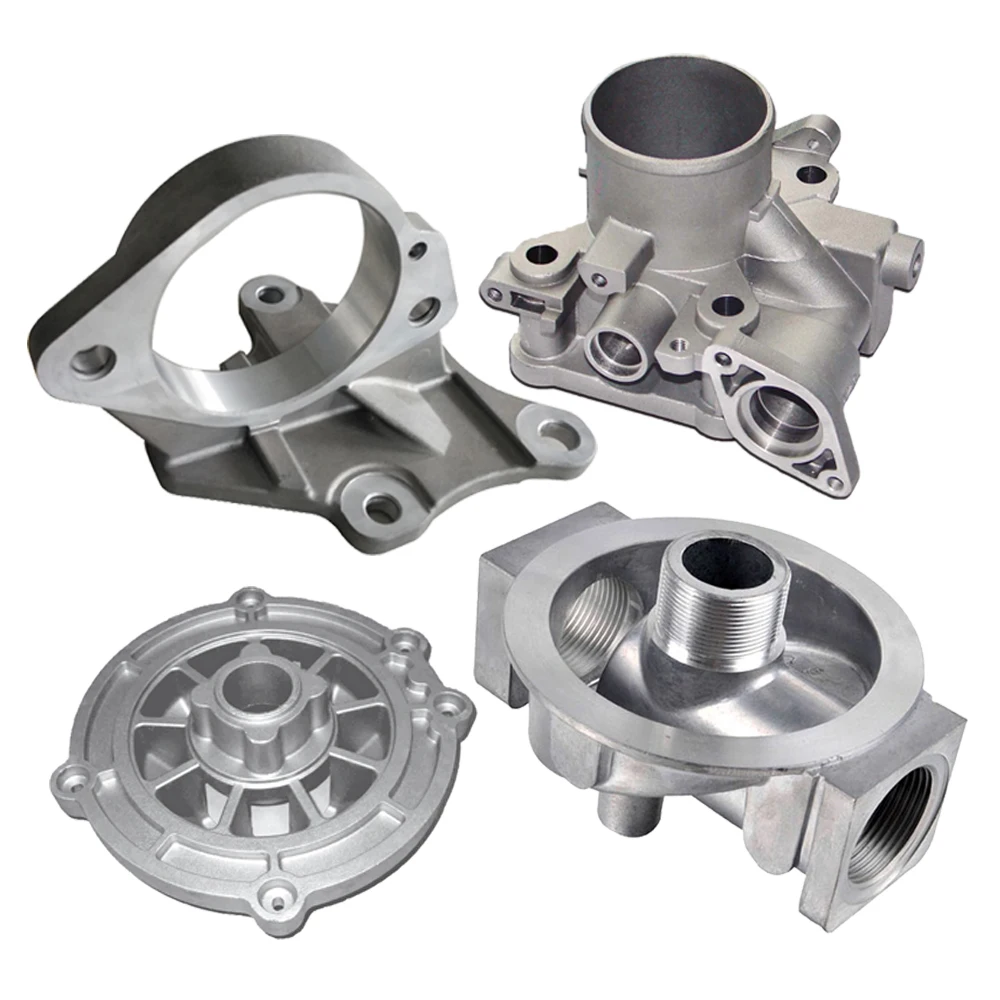How to partner with an Aluminum Foundry for customized results
Wiki Article
Just How Light Weight Aluminum Spreading Adds To Reliable Production Solutions
Aluminum spreading plays an important role in modern production. Its light-weight nature and corrosion resistance make it a preferred option for various industries. Techniques such as die casting and sand spreading allow for the creation of intricate parts with very little waste. The combination of automation more enhances production performance. However, the implications of these innovations prolong beyond simple performance. Comprehending the wider influence reveals significant insights into the future of manufacturingThe Advantages of Aluminum in Manufacturing
Various steels are made use of in manufacturing, aluminum stands out due to its one-of-a-kind buildings that boost production efficiency and item efficiency. Its light-weight nature significantly minimizes transport expenses and energy requirements in various applications. Light weight aluminum's excellent rust resistance assurances long life and resilience, reducing the requirement for frequent replacements and maintenance. This metal can be conveniently formed and formed, permitting flexible layout choices that satisfy certain market needs. Furthermore, light weight aluminum exhibits premium thermal and electric conductivity, making it a suitable option for applications requiring reliable heat dissipation and electric administration. The recyclability of aluminum additionally plays a crucial role in lasting manufacturing practices, as it can be recycled without losing its inherent homes. Generally, the advantages of light weight aluminum in making cause cost savings, improved product durability, and a decreased ecological footprint, making it a recommended product in countless sectors.Key Aluminum Spreading Techniques
Aluminum spreading strategies are essential for creating premium parts in different producing procedures. The main methods include sand casting, die spreading, and financial investment casting. Sand spreading entails creating a mold from sand, which permits intricate forms and huge components. This technique is often preferred for its cost-effectiveness and versatility. Pass away spreading, on the various other hand, utilizes high-pressure to inject liquified light weight aluminum right into steel mold and mildews, leading to accurate, consistent parts suitable for high-volume production. Investment casting provides superior surface area coating and complex detail by making use of a wax pattern that is disappeared to form the mold and mildew. Each of these techniques has particular applications and benefits, enabling makers to select the most suitable approach based on aspects like manufacturing quantity, material, and complexity specifications. By understanding these vital strategies, makers can improve their manufacturing effectiveness and guarantee the integrity of their aluminum parts.Effect On Automotive Industry
As the auto market significantly focuses on light-weight products to enhance fuel efficiency and efficiency, aluminum casting has actually arised as a vital service. This production procedure allows automakers to produce intricate components with reduced weight without endangering structural honesty. By using light weight aluminum spreading, suppliers can produce parts such as engine blocks, transmission real estates, and suspension parts that are not just lighter however likewise display outstanding thermal conductivity and corrosion resistance.The adaptability of light weight aluminum casting methods enables the manufacturing of intricate styles, facilitating advancement in lorry aesthetics and capability. As automobiles end up being more technically advanced, the ability to integrate functions like sophisticated safety and security systems and electrical drivetrains becomes important.

Aerospace Applications of Light Weight Aluminum Spreading
Aluminum casting plays an essential function in aerospace applications by enabling the production of lightweight architectural parts that improve fuel effectiveness. Furthermore, the accuracy of aluminum spreading permits the creation of complex engine components, which are vital for peak efficiency and reliability. This mix of lightweight materials and exact design placements aluminum spreading as a crucial modern technology in the aerospace industry.Light-weight Architectural Components
In the quest for improved performance and efficiency in aerospace applications, light-weight architectural elements have actually become progressively necessary. Light weight aluminum spreading plays an essential role in this undertaking, giving suppliers with the ability to create parts that are both lightweight and strong. The reduced density of aluminum permits for significant weight decreases without endangering structural stability, which is essential for airplane efficiency and fuel effectiveness. In addition, light weight aluminum castings can be engineered to satisfy specific layout requirements, enabling the production of complicated geometries that traditional manufacturing methods might have a hard time to attain. This versatility not just improves manufacturing procedures yet also adds to overall cost savings. As the aerospace market proceeds to emphasize sustainability, the need for lightweight light weight aluminum components is anticipated to increase, further advancing advancement in manufacturing.Precision Engine Components
Suppliers progressively rely on aluminum spreading to create accuracy engine parts for aerospace applications, driven by the product's special properties. Aluminum's light-weight nature considerably lowers general airplane weight, enhancing fuel efficiency and performance. Its exceptional corrosion resistance warranties longevity in severe atmospheres, making it perfect for essential engine components. Additionally, light weight aluminum casting permits complex layouts and limited resistances, necessary for maximizing engine efficiency and integrity. The casting process likewise sustains automation, allowing suppliers to satisfy high need while keeping quality requirements. As aerospace innovation continues to development, the function of light weight aluminum spreading in producing accuracy engine components will be pivotal in attaining higher efficiency and innovation in airplane design and performance.Sustainability and Ecological Advantages
The expanding focus on sustainability in manufacturing has positioned light weight aluminum casting as a leading option for environmentally mindful production. This process utilizes recycled light weight aluminum, which substantially reduces power consumption contrasted to primary aluminum manufacturing. By leveraging scrap steel, makers can lower their carbon impact and minimize waste, straightening with global sustainability goals.Furthermore, light weight aluminum casting creates less dangerous emissions, adding to a cleaner setting. The light-weight nature of aluminum additionally enhances fuel performance in transportation applications, further advertising environment-friendly practices.
Moreover, the durability and rust resistance of light weight aluminum cause longer product life expectancies, reducing the demand for regular replacements and preserving resources. As sectors progressively prioritize lasting options, aluminum casting sticks out as an ingenious technique that not only fulfills production demands but also supports environmental stewardship. This commitment to sustainability settings light weight aluminum casting as a critical player in the change in the direction of a greener manufacturing landscape.
Price Efficiency in Manufacturing
Expense performance is a significant advantage of light weight aluminum spreading, enhancing its sustainability benefits - Aluminum Foundry. The procedure of light weight aluminum spreading permits the production of complicated forms with marginal waste, which is specifically important in an affordable production setting. Utilizing aluminum decreases energy prices, as it has a reduced melting factor compared to other steels, resulting in lowered energy intake during productionFurthermore, aluminum's light-weight residential properties contribute to decrease shipping and handling prices, further enhancing general price effectiveness. The longevity and deterioration resistance of aluminum cast products likewise imply that they require less upkeep and substitute over time, resulting in long-lasting cost savings for makers.
In addition, developments in casting innovations, such as enhanced mold and mildew designs and automation, have structured production procedures, lowering labor expenses and boosting output efficiency. Generally, cost efficiency in light weight aluminum spreading plays a crucial function in optimizing manufacturing procedures and supporting competitive pricing methods.
Future Patterns in Aluminum Casting
The future of aluminum casting is progressively shaped by improvements in automation and sustainable product innovations. Automation modern technologies are expected to enhance efficiency and accuracy in the spreading process, while lasting methods intend to reduce ecological influence. Together, these patterns assure to redefine manufacturing requirements and methods within the aluminum casting market.Automation in Light Weight Aluminum Casting
Accepting automation is changing aluminum casting procedures, paving the means for enhanced performance and precision. Automated systems simplify manufacturing by lessening human treatment, minimizing errors, and raising throughput. Technologies such as robot arms and computer system numerical control (CNC) equipments permit consistent and exact shaping of light weight aluminum parts. In addition, smart sensors keep an eye on numerous criteria in genuine time, ensuring optimal problems throughout the casting procedure. This integration of automation not only reduces preparations however additionally enhances product quality by maintaining tighter tolerances. As producers progressively embrace these sophisticated innovations, the light Bonuses weight aluminum spreading market is set to experience considerable enhancements in functional effectiveness, cost-effectiveness, and competition in the worldwide market.Sustainable Material Innovations

Often Asked Inquiries
What Sorts Of Aluminum Alloys Are Generally Utilized in Spreading?
Typically utilized aluminum alloys in casting consist of 356, 380, and 413. These alloys are preferred for their exceptional fluidity, stamina, and deterioration resistance, making them suitable for a selection of commercial applications.Exactly How Does Light Weight Aluminum Spreading Contrast to Various Other Steel Casting Methods?
Light weight aluminum casting generally offers lower weight, superior corrosion resistance, and better thermal conductivity contrasted to various other metal spreading techniques. In addition, it allows for intricate designs and faster production cycles, improving overall manufacturing effectiveness and efficiency.What Industries Advantage Most From Aluminum Spreading?
The vehicle, aerospace, and electronics markets benefit most from aluminum spreading. These industries utilize its light-weight, corrosion-resistant properties to boost performance, minimize gas intake, and improve overall product efficiency, making aluminum casting increasingly indispensable.Exist Specific Style Limitations With Aluminum Casting?
Yes, aluminum spreading has style constraints, consisting of limitations on wall surface density, complex geometry obstacles, and possible issues with accomplishing tight tolerances (Aluminum Casting Company). These aspects can influence the general stamina and capability of the last productJust How Is Top Quality Control Maintained in Aluminum Casting Processes?
Quality assurance in light weight aluminum casting processes is kept via strenuous assessments, adherence to standardized procedures, and using sophisticated innovations. Regular monitoring assurances dimensional accuracy, surface area honesty, and material uniformity throughout manufacturing, promoting overall reliability.As the vehicle market significantly prioritizes lightweight materials to boost fuel effectiveness and efficiency, aluminum spreading has arised as a crucial remedy. check that Light weight aluminum spreading plays an essential duty in aerospace applications by enabling the manufacturing of lightweight structural parts that improve gas performance. Price performance is a considerable benefit of light weight aluminum casting, enhancing its sustainability advantages. Embracing automation is transforming light weight aluminum spreading procedures, leading the means for improved efficiency and precision. Recycled light weight aluminum use has actually gotten grip, considerably reducing power consumption compared to key light weight aluminum manufacturing.
Report this wiki page